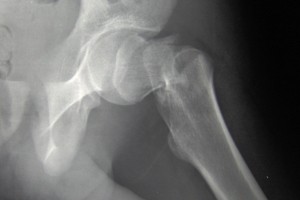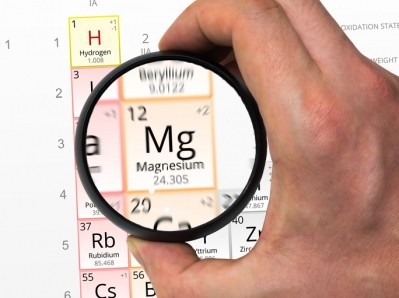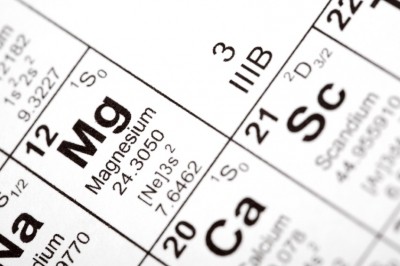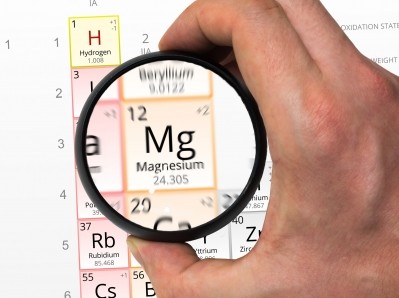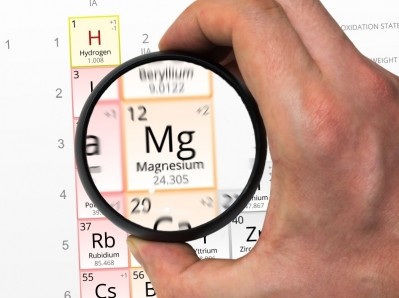Adequate magnesium intakes may boost bone health: Study

Data from 3,765 older Americans with an average age of 60 indicated that the highest average intakes of magnesium were associated with a 53% and 62% lower risk of fracture for men and women, respectively, compared to those with the lowest average intakes.
“However, the association between Mg intake and the onset of fractures seems to be stronger in women as only women reaching the RDA showed a significantly lower risk for fractures and only in women, after adjusting for height, did the association between Mg intake and fractures remain significant,” wrote the researchers in the British Journal of Nutrition.
“[H]igher dietary [magnesium] intake has a protective effect on bone osteoporotic fractures, particularly in women, suggesting an important role of this mineral in osteoporosis and fractures.”
“Exciting”
In an accompanying commentary, Dr Richard Hayhoe from the Faculty of Medicine and Health Sciences at University of East Anglia (UK) called the study’s findings “exciting”.
“Despite mounting epidemiological evidence of the positive association of Mg intake and bone mineral density, data showing an association between dietary Mg intake and fracture risk has until now been unconvincing,” wrote Dr Hayhoe. “The study described by Veronese et al. thus provides a useful addition to the literature supporting the relevance of dietary intake of Mg to osteoporotic fracture risk and, once reinforced by clinical trial data, raises the prospect of exploiting this relationship in nutritional public health strategies to improve bone health at a population level.”
Benefits
The results add to an ever growing body of science supporting the potential health benefits of the mineral. The National Institutes of Health (NIH) lists magnesium as being necessary for more than 300 biochemical reactions in the body, from helping maintain normal muscle and nerve function, to keeping heart rhythm steady, supporting a healthy immune system, and keeping bones strong. The mineral is also needed for blood sugar management, and healthy blood pressure.
The science and positive regulatory decisions have led to increased interest from consumers in magnesium and this has led to increasing sales. According to SPINS, US sales of magnesium supplements across natural, specialty gourmet and conventional multi outlet channels grew 15.2% to $85 million for the 52 weeks ending January 24, 2016, up from $74 million from the previous 52 weeks.
And with 70-80% of the US population not meeting their recommended intakes of magnesium, the market is expected to continue to grow. Indeed, some industry experts are predicting that magnesium sales in the nutrition market will surpass calcium by 2020.
Study details
Researchers from Italy and the UK used data from the Osteoarthritis Initiative, a large cohort of American men and women. During the eight years of analysis 560 people developed a new fracture.
The highest average intakes of magnesium (398 mg/d for men and 373 mg/d for women) were associated with significant reductions in fracture risk (53% and 62%, respectively), after the numbers had been adjusted to account for 14 potential confounding factors.
However, when height was taken into account the risk reduction fell to 25% for men and 53% for women, with statistical significance only achieved for women, said the researchers.
“It is pertinent to consider that only 27% of the study cohort reached the USA RDA for Mg of 420 mg for men and 320 mg for women over 30 years of age, but that risk of fracture for women in this subgroup was significantly lower than in those not achieving the RDA,” noted Dr Hayhoe in his commentary.
“Further randomised controlled trials are needed to understand the possible role of Mg in delaying fractures,” concluded the researchers.
Sources: British Journal of Nutrition
Published online ahead of print, doi: 10.1017/S0007114517001350
“Dietary magnesium intake and fracture risk: data from a large prospective study”
Authors: N. Veronese et al.
Commentary on ‘dietary magnesium intake and fracture risk: data from a large prospective study’
Author: R.P.G. Hayhoe
